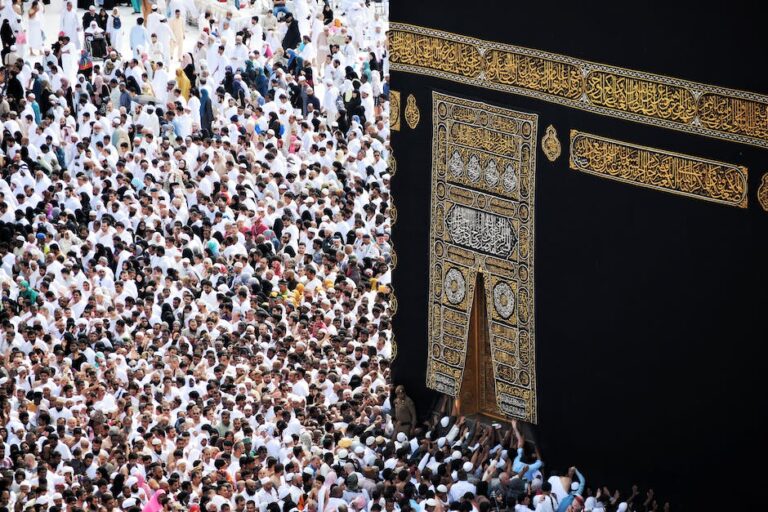Understanding the Five Pillars of Islam: Zakat
Zakat is one of the five pillars of Islam, and it is often described as a charitable obligation that every Muslim is required to fulfill. The word Zakat comes from the Arabic word ‘Zakah,’ which means to purify, cleanse, make grow, or flourish. Zakat involves giving a portion of one’s wealth to help those who are less fortunate and in need. It is a way to ensure that the needs of the community are being taken care of and to promote social welfare and justice.
The principle of Zakat has been mentioned numerous times in the Quran, and it is considered a form of worship that is rewarded by Allah SWT. Giving Zakat not only helps those in need but also helps the individual who is giving it by purifying their wealth and promoting generosity. In Islam, wealth is considered a blessing from Allah SWT, and it is the duty of the wealthy to share their blessings with those who are less fortunate.
The Importance of Giving Zakat
Zakat is an essential aspect of Islam and a symbol of a believer’s willingness to contribute to the well-being of society. Giving Zakat is one of the most significant ways for Muslims to show their devotion to Allah SWT and demonstrate their commitment to Islam. In addition to the spiritual benefits, Zakat also has practical benefits that contribute to the well-being of society.
By giving Zakat, we can help alleviate poverty, contribute to the well-being of the community, and promote social welfare and justice. Zakat can help empower and uplift those who are struggling, providing them with the necessary resources to improve their lives. Additionally, Zakat can help promote economic stability by circulating wealth within the community and providing financial support to those who need it.
In summary, Zakat is not just about giving money to those in need; it is about fulfilling a religious obligation, contributing to the well-being of society, and demonstrating one’s devotion to Allah SWT. As Muslims, it is our duty to contribute to the well-being of the community and help those who are less fortunate, and Zakat is a powerful way to do so.
How to Calculate Zakat
Calculating Zakat can be a bit complex, as there are several factors that need to be taken into consideration. The primary factor that determines Zakat is the wealth of an individual, which includes their income, savings, and assets. To calculate Zakat, you must first determine your net worth by adding up all of your assets and subtracting your liabilities. Once you have determined your net worth, you must then calculate 2.5% of that amount.
For example, if your net worth is $50,000, 2.5% of that would be $1,250. This would be the amount of Zakat that you would be required to pay. It is important to note that Zakat is not applicable to all forms of wealth. For instance, personal items such as clothing, furniture, and primary residence are not considered when calculating Zakat.
It is essential to calculate Zakat accurately and ensure that all debts and liabilities are taken into account to avoid underpaying or overpaying Zakat. One way to simplify the process is by using Zakat calculators available online, which can help you determine the exact amount of Zakat that you should pay based on your net worth.
Distributing Zakat to the Needy
Once you have calculated your Zakat, the next step is to distribute it to those who are in need. Zakat is typically distributed to eight categories of people, as mentioned in the Quran:
- The poor: Those who have insufficient funds to support themselves and their families.
- The needy: Those who have some money and assets but are still in dire need of assistance.
- The collectors: Those who are appointed to collect Zakat on behalf of the Islamic state.
- Those whose hearts need reconciliation: Those who have recently converted to Islam or have shown hostility towards Islam.
- The slaves: Those who are trying to buy their freedom or are unable to support themselves.
- The debtors: Those who are in debt and are unable to pay their debts.
- Those fighting for the cause of Allah: Those who are actively fighting in a war or conflict for the sake of Islam.
- The wayfarers: Those who are stranded and unable to continue their journey due to financial hardship.
It is important to give Zakat to trusted organizations or individuals who can distribute it to those who truly need it. Zakat can be given directly to the poor or donated to a Zakat fund or organization that can distribute it on your behalf. When donating Zakat, it is crucial to ensure that the funds are being used effectively and efficiently to make a meaningful impact on those in need.
Common Misconceptions about Zakat
There are several common misconceptions about Zakat that can lead to confusion and misunderstanding about this important pillar of Islam. One of the most significant misconceptions is that Zakat is only applicable to money and cash, which is not entirely accurate. Zakat is based on an individual’s net worth, which includes all forms of wealth such as property, investments, and savings.
Another misconception is that Zakat is only payable once a year, which is not entirely true. Zakat is calculated based on the wealth that an individual has had for one lunar year. If an individual’s wealth increases or decreases during the year, Zakat must be re-calculated accordingly.
Some people also believe that Zakat is only meant for Muslims, but non-Muslims can also receive Zakat if they are in financial need or debt.
Lastly, some individuals believe that Zakat is a form of tax that is imposed on Muslims by the government, which is not true. Zakat is a voluntary act of worship that is mandated by Allah SWT and is solely the responsibility of the individual.
Incorporating Zakat into Daily Life
Incorporating Zakat into daily life can be a powerful way to strengthen one’s faith and promote social welfare and justice. One way to incorporate Zakat into daily life is by setting aside a specific percentage of one’s income or savings for charity. This can be done by creating a separate bank account for Zakat or designating a portion of one’s income for charitable giving.
Another way to incorporate Zakat into daily life is by volunteering or supporting charitable organizations that are working to empower and help those in need. This could involve volunteering at a local food bank or soup kitchen or making regular donations to a charity or organization that aligns with one’s beliefs and values.
It is also essential to remember that Zakat is not just about giving money; it is about promoting social responsibility, compassion, and empathy. Incorporating these values into everyday life can help promote positivity, strengthen relationships, and contribute to the well-being of the community.
In conclusion, Zakat is an essential pillar of Islam that promotes social welfare and justice. By understanding its fundamental principles, calculating Zakat accurately, and incorporating it into daily life, we can make a meaningful impact on those in need and strengthen our faith in Allah SWT.







